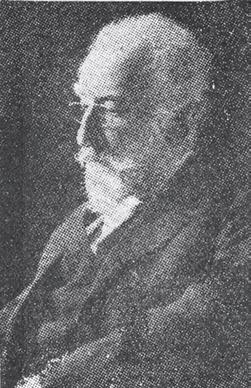Pierce Charles de Lacy O'Mahony facts for kids
Pierce Charles de Lacy O'Mahony (born June 9, 1850 – died October 31, 1930) was an interesting Irish figure. He was known as a politician who supported Irish self-rule and a kind person who helped others. He had three different names during his life and even changed his religion three times! What's more, he received awards from the kings of two countries that were fighting each other in World War I.
He was not the same person as his grandfather, also named Pierce Mahony, who was a politician linked to Daniel O'Connell. He also wasn't his son, Pierce Gun Mahony.
Early Life and Education
Pierce O'Mahony was born in Dublin, Ireland. His family belonged to the Church of Ireland. His father passed away soon after he was born. When he was six, his mother remarried, and they moved to England.
He went to Rugby School and then Magdalen College, Oxford. While at Oxford, he started a club to support Irish Home Rule. This idea meant Ireland should govern itself. He also studied at the Royal Agricultural College and won a special medal there in 1875.
Pierce married Helen Louise in 1877. She passed away in 1899. In 1901, he married his cousin, Alice Johnstone, who died in 1906. A very old stone cross from a monastery in Bulgaria stands over Alice's grave in Ireland.
Before becoming a full-time philanthropist, Pierce worked as an Assistant Land Commissioner. He also served as a judge in County Kerry and County Limerick. He helped the poor as a Poor Law Guardian.
A Politician for Ireland
In 1886, Pierce O'Mahony was elected as a Member of Parliament (MP) for North Meath. This meant he represented that area in the British Parliament. He was part of the Irish Parliamentary Party, which wanted Ireland to have more control over its own affairs.
The party later split over its leader, Charles Stewart Parnell. Pierce O'Mahony was one of the few Protestant MPs who stayed loyal to Parnell. They remained close friends.
In the 1892 election, Pierce lost his seat. He believed that the Catholic Church had unfairly influenced voters against him. He successfully challenged the election result in court. Even in the new election, he lost again.
He tried to get back into Parliament three more times but was not successful. In 1918, he lost by a very large margin to a candidate from Sinn Féin, a party that wanted complete Irish independence.
Helping Others Around the World
In 1898, Pierce became a barrister, which is a type of lawyer. However, in 1900, he inherited money from an uncle. This meant he no longer needed to work for pay. He decided to dedicate his life to helping others. This is called philanthropy.
In 1903, O'Mahony traveled to Bulgaria. He went there to help orphans who had escaped terrible events. In 1904, he opened an orphanage called St Patrick's Orphanage in Sofia, the capital of Bulgaria.
When World War I started in 1914, he tried to stop Bulgaria from joining forces with Germany. After the war, he argued that Bulgaria should not have to pay war damages. For his work, the King of Bulgaria gave him a special award in 1915.
During World War I, he also helped recruit Irish soldiers for the British Army. He even visited soldiers at the front lines. For this work, he was offered an award from the British Empire in 1920, but he turned it down. Later that year, he resigned from his official positions in protest against British actions during the Irish War of Independence.
While in Bulgaria, Pierce O'Mahony joined the Bulgarian Orthodox Church. He also remained a member of the Church of Ireland for a long time. In 1927, he chose to become a Roman Catholic. He passed away in 1930.
To remember his connection with the Bulgarian Orthodox church, Pierce paid for a special painting in 1909. It shows Saints Methodius, Cyril, and Patrick together. This unique painting can be found in a chapel in Bulgaria. Some people say the painting of St Patrick looks a lot like Pierce O'Mahony himself!
Legacy
Pierce O'Mahony's son, Dermot O'Mahony, also became a politician. He served in the Irish Parliament, called the Dáil Éireann, from 1927 to 1938.
Today, a street in Sofia, Bulgaria, is named Pierce O'Mahony Street in his honor. A Bulgarian theatre director, Atanas O'Mahony, also carries his name. Atanas's great-grandfather was one of the Bulgarian orphans adopted by Pierce O'Mahony.
 | James Van Der Zee |
 | Alma Thomas |
 | Ellis Wilson |
 | Margaret Taylor-Burroughs |


